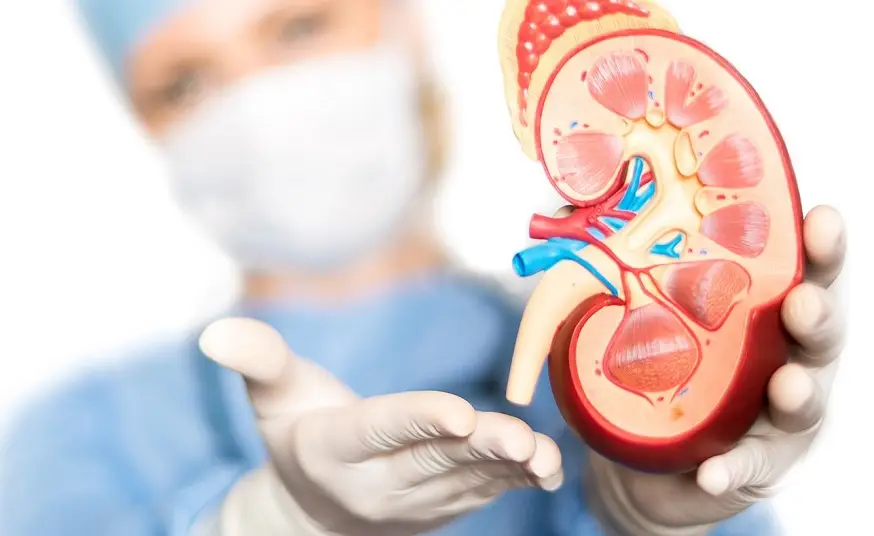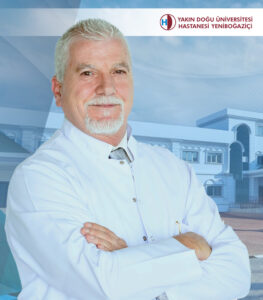As in all other branches, Near East University Hospital also provides high quality diagnosis and treatment in the field of urology. Units equipped with modern technology and experienced specialist technical personnel enable high rates of success in diagnosing diseases. The most commonly used method in diagnosing urological diseases is radiology. With this aim, our hospital Radiology Department has modern, digital Magnetic Resonance Imaging (MRI), Computed Tomography, Ultrasonography and conventional radiology devices. Additionally, Renal Scintigraphy used for determining kidney infections, Full Body Bone Scintigraphy used in determining the phase of urological cancer and PET,CT in the Nuclear Medicine Department help diagnose and monitor diseases. The Near East University Hospital laboratory equipped with miraculous technological devices is the greatest aid in diagnosing urology diseases and all modern, immunologic and genetic applications support urology. The operating theatres at Near East University Hospital are equipped with the latest technology, instruments, devices and experienced staff for treating urological diseases. Today, ‘’minimal invasive surgeries’’ are used in urological surgical methods around the world. The aim of this method is to conduct operations with miniaturised instruments in order to reduce the patients’ post-operative symptoms, post-operative complication rates and the duration of time spent in hospital, thus enabling them to return to normal life in the shortest time frame possible. The majority of devices and instruments needed for minimally invasive surgery methods are available at our hospital and we also have an experienced team that can perform these surgical applications successfully. These surgeries (minimally invasive surgery) have become routine applications in most urological operations. Minimally invasive surgery generally consists of endoscopic and laparoscopic surgical techniques. The diseases for which these applications are most commonly used are urinary system stone diseases and urological cancers. The treatment of kidney stones at our hospital is successfully performed with a closed operation method. The method called percutaneous nephrolithotomy consists of making a 1cm incision and entering the kidney to break and then remove the kidney stones. Additionally, the method used for the treatment of certain kidney stones called Retrograde Intrarenal Surgery is a form of minimally invasive surgery. This method consists of entering the urinary tract with a flexible ureteroscope (upwards) to reach the kidney stones, breaking the stones and the removing the broken pieces. All the technological facilities needed for this method are available at our hospital. Laparoscopy, which is another minimally invasive application often used in urology, is available at our hospital and is generally used as an alternative to open operations. It is used to remove kidneys that have a non-cancerous tumour (nephrectomy), correct narrowness in the exit of the kidney, treat certain kidney stones, and cases that need partial nephrectomy. Additionally, it is used for certain urethrae and bladder diseases and is an advantageous method for the treatment for prostate tumours. The facilities required to conduct laparoscopic operations are available at our hospital. Operations conducted for the treatment of urological cancer are also provided by the team at our hospital. These operations are called radical operations and they include radical cystectomy, prostatectomy, nephrectomy, nephroureterectomy and orchiectomy. Apart from orchiectomy, all are major and long operations, particularly radical cystectomy which lasts 5-6 hours. All of these operations are conducted by our urology team. The diagnosis of non-cancerous prostate growth and its medical and surgical treatment (closed prostate operations) are also successfully conducted at our hospital.
As well as minimally invasive and radical surgeries, our hospital treats urological disease that require open operations (retroperitoneal fibrosis, retroperitoneal lymph node dissection, retroperitoneal tumours, transurethral-ureterostomy, bladder augmentation etc.)
Urology
